Table of Contents
We all feel anxious from time to time. It could be an upcoming test, an interview, or even meeting a relative. Sometimes, anxiety is triggered by stress and deeper underlying issues. There’s no need, however, for anxious feelings to leave you depleted. For the most part, it is easy to calm anxiety. There are various ways and handy tricks to lower anxiety and nip any panic attack in the bud. Relax and keep reading to discover 30 ways to keep calm and improve your mental health.
How to recognize anxiety symptoms
Anxiety is a normal human reaction everyone experiences from time to time. You may feel anxious before a big exam, a job interview, or a presentation. Anxiousness manifests in different ways and to varying extremes.
Here are some common anxiety symptoms:
- Sweating
- Trembling
- Trouble sleeping
- Nervousness or tension
- Increased heart rate
- Headache
- Stomachache
Naturally, people react to anxiety in different ways. Research suggests that personality influences how people respond to stressful events (1, 2).
Anxiety disorders and panic attacks
Recurring anxiety or panic attacks can cause health problems like raised blood pressure or digestive issues. Anxiety disorders, when not dealt with effectively, may even lead to depression and insomnia.
How to calm anxiety quickly
Anxiety is normal and typically not a form of mental illness. However, chronic symptoms occurring over a long time can lead to health issues and may affect daily activities at work, school, or even relationships.
The upside is there are many effective tricks for combating anxiety, regardless of your personality type.
Discover what works for you and how to calm anxiety in 30 effective ways:
Breathing Techniques
Slow breathing
Try taking a slow deep breath when you feel anxious. This one simple action can immediately reduce symptoms. Slow breathing can improve emotional control and flexibility, expand attention, and lower cortisol levels (3, 4).
Fine-tune your slow breathing technique by practicing diaphragmatic breathing.
Diaphragmatic breathing, called belly or deep breathing, is more calming than shallow chest breathing. Diaphragmatic breathing means taking long, slow breaths involving the diaphragm, the thin, rounded muscles located below the lungs and heart. You can inhale more oxygen, thus energizing and calming your body (4). It also activates the vagus nerve, the major outflow pathway for the parasympathetic nervous system, otherwise known as the rest-and-digest nervous system, that promotes relaxation and a calm state.
You can practice diaphragmatic breathing in the following way:
- Lie flat on a comfortable surface.
- Put one hand on your stomach.
- Breathe slowly and deeply through your nose.
- Imagine inhaling air into your stomach.
- Your stomach should rise during the process.
- Exhale slowly through your nose or mouth.
- Your stomach should return to its original position.
Try practicing this for 5 to 10 minutes a day, and you’ll notice how your mood improves.
4-7-8 Technique
You can also practice the 4-7-8 breathing technique to calm your nerves. This technique helps you slow down your breathing by noticing the duration of your breath. Here is how it works:
- Lie down or sit in a comfortable position.
- Breathe through your nose for 4 seconds.
- Hold your breath for 7 seconds.
- Exhale through your nose or mouth for 8 seconds.
Moreover, learn more about how to use HRV to measure stress to help you in the stress management journey.
Slow and deep diaphragmatic breathing benefits your mental and physical health. The 4-7-8 breathing technique helps control your breathing and slow your heart rate.
Avoid Stimulants
Limit caffeine intake
Your daily cup of Joe might be the reason for some symptoms of anxiety.
Caffeine in coffee can have benefits. It helps us be more focused and alert and to perform better. However, too much can wreak havoc on your body.
Too much caffeine can cause stress, anxiety, and depression; children and men seem particularly vulnerable ( 5, 6)
One study examined medical students in Lebanon, who consume a lot of caffeine to deal with stress. Daily caffeine intake was associated with increased anxiety, and the correlation was statistically significant (7, 8).
You can still drink coffee, but just limit your daily intake to consume no more than 400 mg of caffeine, which is about 4 to 5 cups of coffee (9).
Drink less alcohol
It is common for coworkers in some cultures to go drinking to blow off steam, often on Friday nights. Well, we have some bad news for you.
Long-term alcohol use negatively affects our brain’s neurons, making our brains more prone to develop anxiety (10). This means alcohol can worsen symptoms rather than reduce it. There is also an association between alcohol use disorder and anxiety (11).
Grabbing a beer with your friends is fine, but it’s best to drink in strict moderation for the sake of your health.
Excessive caffeine can agitate your nerves and cause anxiousness, so drink less. Alcohol damages your brain and can worsen symptoms of anxiety, so drink in moderation.
Diet and Nutrition
Eat healthily
You may think anxiety is all in your mind, so what does diet have to do with it? This is where gut-brain connection comes in.
Your digestive system and brain are connected. A troubled stomach can be the result or cause of anxiety (12). There’s a lot of research to back up this theory.
One study revealed how a higher intake of ultra-processed foods can increase the odds of anxiety or depression (13). This means sugary drinks, frozen food, and processed meat can negatively affect your brain.
A balanced, nutrient-dense diet is essential for the health of people prone to anxiety. Higher perceived stress is associated with greater food intake and poorer quality food, higher in added sugar and saturated fat, and lower in vegetables (14). People with anxiety disorders tend to have a low-quality diet, which spirals into other health issues (15).
Furthermore, you can try increasing magnesium to avoid anxiety attacks. Magnesium is essential in regulating your neurons when facing stress (16).
Since magnesium deficiency is quite common, try adding these magnesium-rich foods to your diet:
- Dark leafy greens like kale and spinach
- Nuts and seeds like cashews and pumpkin seeds
- Fruits like avocados and bananas
- Fatty fish like salmon and mackerel
Sip calming teas
Sipping hot tea is relaxing and scientifically proven to benefit your health.
Chamomile tea has been studied as a treatment for generalized anxiety disorder (GAD). It calms your nerves, improves sleep quality, and reduces inflammation and the risk of heart disease (17).
Green tea is also a great choice to calm your nerves. Theanine, an amino acid in green tea, can reduce stress. A Japanese research study discovered that a group drinking matcha, or powdered green tea, was much less anxious than the one that didn’t (18).
A healthy diet and avoiding processed foods can reduce the risk of developing anxiety. Magnesium may also help you to deal better with stress. Drinking chamomile or green tea can reduce anxiety symptoms, so put the kettle on!
Acceptance and Self-care
Accept limitations of control
Sometimes, when we have anxious thoughts, there’s a tendency to worry about things out of our control. This can make us feel helpless, and anxiety symptoms worsen.
But the truth is, we cannot control everything. At some point, we need to admit that some things are out of our control.
This, however, does not imply being passive and withdrawing from life. Instead, we can intentionally focus on feelings and things we can control.
By acknowledging anxiety for what it is, we can let go of the need to control everything and focus on what matters the most in our lives.
Maintain a positive attitude
Staying positive in the midst of anxiety isn’t easy. Anxious thoughts can take over, which then makes things worse. Even so, you can still do simple positive things to find your center.
One way to remain positive is to focus on what you are grateful for. Simple things like appreciating family, friends, or favorite activities can help. Or, simply be grateful for what hardship has taught you. Journaling may also help.
You can also practice positive affirmations. Saying things like, “I am capable of handling whatever comes my way,’ may seem trivial, but a few times said aloud can make you feel more in control (19).
Finally, do your best to surround yourself with positive people and good influences. Reach out to supportive people who can encourage and lift you up.
Have some alone time
Sometimes social pressure causes anxiety. This is when you may need some alone time. Being alone allows you to focus on your thoughts and feelings without distractions, giving you time to recharge and relax.
Try these stress-releasing activities when you are alone:
- Meditation practices
- Reading in a quiet place
- Walking in nature
- Creative painting or writing
- Diaphragmatic breathing
Establish self-care routines
Self-care routines can help, especially for people engaged in high-stress careers or similar activities.
Medical students and mental health practitioners with self-care routines feel less anxious and perform better under stressful conditions (20, 21)
You can also establish a personal self-care routine to calm your own nerves.
Here are some ideas that you can try:
- Get a massage
- Enjoy a tasty, healthy meal, and take your time eating it
- Go for a walk in a park
- Practice yoga
Be kind to yourself
Being nice to yourself sounds all well and good. But it’s important to remember that feeling anxious is a natural occurrence that we cannot always control. It is not your fault that you are anxious. Greater self-compassion correlates with less anxiety and depression (22).
Take a deep breath, light a candle, relax, and be kind to yourself like you would to a good friend.
Accepting that not everything is under your control is the first step in regaining your calm. Try using positive affirmations and surround yourself with upbeat people so you don’t slip into panic mode.
It’s important to have time for yourself to heal and relax. Healthy self-care routines can be very useful in managing symptoms. Remember that anxiety can happen to anyone, so go easy on yourself.
Sensory and Mantras
Use fragrance
Stimulating your senses with fragrance can restore calmness more than you think. Not surprisingly, lavender is especially good for this.
Lavender oil has been found to be as effective for treating anxiety as conventional prescription medications, such as lorazepam (Ativan). Furthermore, it has no negative side effects or dependency like some of those medications (23, 24). It is a true gift from Mother Nature.
You can enjoy the benefits of lavender by simply inhaling the essential oil, using an aromatherapy burner, or mixing it in a massage oil.
Listen to music
A good beat or melody can also make your day better. Listening to music daily can reduce stress and feelings of anxiety, especially if you listen for relaxation (25, 26).
You may think relaxing music, such as classical or lo-fi, is the best, but research shows that music preference (how much you like the music) is the most critical factor in reducing stress (27).
Find a mantra
Mantra meditations, such as transcendental meditation, can also help you find inner peace. Mantras are syllables that you say repeatedly out loud. Different from positive affirmations, the power of mantra is in its vibration. The vibration of a mantra can carry the power of healing.
Repeating a mantra can help reduce stress and anxiety and reduce hypertension (28).
You can easily find examples of mantras and try practicing them for yourself.
Try lowering anxiety with the folk wisdom of lavender oil. Listening to music, especially music that you like, can reduce symptoms. The vibration of chanting mantras can heal the body and calm you down.
Physical Activity and Hydration
Take a walk
It is surprising how a 10-minute walk can calm you down immediately.
Long hours of sitting in front of your computer can damage your health. Reducing your sitting time by one hour a day can benefit your mood, lessen anxiety, and result in better sleep quality (29).
Try working at a standing desk, but take some walking breaks in between.
Walking in nature has an even better effect.
Research has found that walking in nature lowers stress levels more compared to walking in urban areas or indoors (30).
Try taking a 10-minute walk in the nearby park. You will feel much better.
Drink water
Dehydration is an underrated cause of anxiety.
Your body needs sufficient water to function properly. Dehydration can cause fatigue, stress, anxiety, and drowsiness (31, 32, 33)
It is essential to drink enough water every day. The recommended daily water intake is 125 ounces (3.7 liters) for men and 91 ounces (2.7 liters) for women. The number may change depending on your diet, where you live, and your activity level (34).
A 10-minute daily walk in a natural setting can make you feel much better. Simply drinking enough water can lower your chance of becoming anxious.
Relaxation Techniques and Distractions
Try the 5-4-3-2-1 technique
When anxiety hits, try calming down with the 5-4-3-2-1 technique. This method uses your senses to observe the things around you. It helps distract you from negative feelings, and you can do this by noting:
- Five things you see
- Four things you hear
- Three things you smell
- Two things you can touch
- One thing you can taste
Try noticing the details that you would usually neglect. Paying attention to the humming of the air conditioner or the wrinkle on your shirt can stop you from feeling anxious.
Distract yourself otherwise
Since the fastest escape route from negative thought patterns is a good distraction, you may need a few more things on your list. Distraction isn’t so much a denial of reality but more of a coping mechanism to avoid a vicious circle of anxious thoughts.
You can try doing these for distraction:
- Watch a movie
- Read a book
- Go for a walk
- Get some exercise
- Practice meditation
- Enjoy a hobby
Learn muscle relaxation
Progressive muscle relaxation (PMR) involves tensing and then relaxing different muscle groups of your body. This helps to release physical tension and regain a sense of calm.
PMR is an effective practice that helps reduce stress in COVID-19 patients and care nurses (35, 36).
Get a good laugh
Laughing is the most potent medicine. When you laugh, your brain releases endorphins, making you feel happy and relaxed. You can think of a humorous moment in your life and visualize it.
Or you can do the following to get a laugh:
- Watch something funny.
- Read stuff that makes you laugh.
- Spend time with humorous people.
- Enjoy playtime with your children or pets.
- Just pretend to laugh, and natural laughter will come.
Take a cold shower
Yes, a cold shower does cool you down and chill you out!
The thought of a cold shower might make you more anxious, but exposure to cold can help relieve anxiety (37, 38):
- Stimulate your brain to produce endorphins
- Boost neural anti-depressant effects
- Reduce pain and inflammation
If you’re not used to cold showers, it’s best to start with a short one. Start from 30 seconds, then move on to 45 seconds. Finally, try 1 minute and up to 2 to 3 minutes every day. You can also sink your face into a large bowl of cold water for 30 seconds to get the same effect.
Although this is a great way to calm down, sudden exposure to cold may not suit everyone, especially if you are already sick or have heart conditions. Warm water bathing has also been shown to improve mood, lowering stress and anxiety, and have additional health benefits (39).
Try distracting yourself with the 5-4-3-2-1 technique to calm down quickly. There are various things you can do to avoid negative thought patterns. Laughter may be said to be the greatest of all medicines.
A one-minute cold shower can help boost your mood. If that doesn’t work, take a relaxing warm bath.
Mindfulness and movement
Explore mindfulness meditation
Mindfulness meditation helps you calm down by focusing on the present moment. It puts you into a state of mind without distraction or judgment. There are many ways to practice mindful meditation, and the key is finding a suitable method for you.
Here are some mindful meditation practices that you can try:
- Mindful breathing
- Sitting meditation
- Body scan meditation
- Mindful movement
- Walking meditation
People practicing mindfulness meditation have a lower level of stress and anxiety and higher levels of confidence and energy (40, 41).
Practicing mindfulness meditation for 13 minutes daily is proven to make a big difference (42).
Use visualization techniques
Visualizing peaceful scenes can promote a state of relaxation (43). Such imaging can shift your attention away from negative thoughts and calm you down.
You can picture natural environments such as beaches, forests, or mountains. Or, you can imagine yourself completing a task you have been working on.
Get regular exercise
Great modern-day philosophers such as Arthur Schopenhauer also knew that regular exercise is the core of human happiness.
Exercising reduces anxiety and depression and improves your self-esteem (44).
A group of people who did a 12-week exercise intervention showed more significant improvement in mood than the group that didn’t. This study also discovered moderate and high-intensity workouts (HIT) had the best effect, although similar benefits were seen with mild-intensity exercise (45).
You can try to exercise for 30 to 60 minutes daily to reap the benefits.
Daily short mindfulness meditations can help you reduce stress and worry. The mind is a powerful thing and visualizing yourself in a peaceful environment can elevate your mood. Establishing a regular exercise routine can help with anxiety symptoms.
Habits and Socializing
Hang out with friends
The lack of social interaction is a big reason people became more depressed during the COVID-19 pandemic (46).
We are largely social animals. Social support from friends and family can strengthen our ability to deal with stress (47).
Physical touch is also a powerful medicine for depressed moods. Cuddling or touching others induces our body to release oxytocin, a hormone that boosts your mood (48).
Studies show that hugging reduces our cortisol levels (stress hormone) and slows our heart rate (49, 50).
Maybe it’s time to call your friends.
Avoid procrastination
Procrastination may seem like a product of anxiety, but it is also a significant cause. Problems that are not dealt with tend to expand under stress and pressure.
A study found that procrastination promotes stress in medical students. The study further showed that negative parenting styles, such as punishment and rejection, could be a primary cause of procrastination in children (51).
So, how can you deal with procrastination? Try these tips below:
- Break tasks into smaller, more manageable steps.
- Set achievable and measurable goals with a clear deadline.
- Create a schedule to keep you on track toward your goals.
- Cut distractions such as social media, email, or notifications.
Consider journaling
By putting your thoughts and feelings down on paper, you can be more objective about your emotions and tackle them from different angles.
Many medical establishments have already used journaling to treat patients with anxiety disorders. The effects are significant, and you only need a pen and paper, a tablet, or a smartphone (52, 53).
You can try journaling with the ‘Three-Minute Mental Makeover’ technique which has helped healthcare workers and patients reduce stress and worry (54). You can write by using these prompts:
- Write three things you are grateful for.
- Write the story of your life in 6 words.
- Write three wishes you have.
Form good sleep habits
Getting enough sleep is crucial for your mental health.
Around 50% of individuals with anxiety suffer from sleep disturbance, especially insomnia (55). The lack of good-quality sleep will significantly damage your mental and physical health.
Here are some tips to get good quality sleep:
- Keep your room cool and dark.
- Avoid caffeine and alcohol late in the day.
- Set a regular sleeping time.
- Stretch or do light yoga before bed to relax.
Breaking tasks into manageable steps and achievable goals reduces both procrastination and anxiety. Social companionship and physical touch can calm you down quickly.
Writing down your feelings can help to express your feelings and reduce your anxiety. Good-quality sleep is a cornerstone of mental health.
Professional Support
Consider therapy or counseling
Although deep breathing, exercise, and socializing can help, you should seek professional support if you have these conditions:
- Your anxiety is impacting your daily life, making everyday activities such as going to work, school, or social events difficult.
- Anxiety is impacting your relationships with friends, family, or romantic partners.
- Your anxiety is causing chronic physical pain, such as headaches, muscle tension, and digestive issues.
Keep in mind that there is no shame in seeking professional care. We all face problems and need to find ways to cope with them.
There are many types of therapies that may be recommended, such as Cognitive Behavioral Therapy or Acceptance and Commitment therapy. It is best to discuss treatment alternatives with a professional and determine which one is the best match.
Takeaway: Seek professional support when anxiety is drastically affecting your quality of life.
Summary
Anxiety is an often unavoidable part of life. We thrive by overcoming obstacles and challenges; stress and worry are part of our growth. Maintaining a healthy lifestyle is the best coping mechanism. A nutritious diet, regular exercise, good-quality sleep, and self-care routines can support your mental health. You can also practice mindful meditation, journaling, and cold showers to calm the mind.
Remember, it is normal to experience anxiety.
Want more tips and tricks to stop anxiety? Anything that we missed? Leave a comment down below!





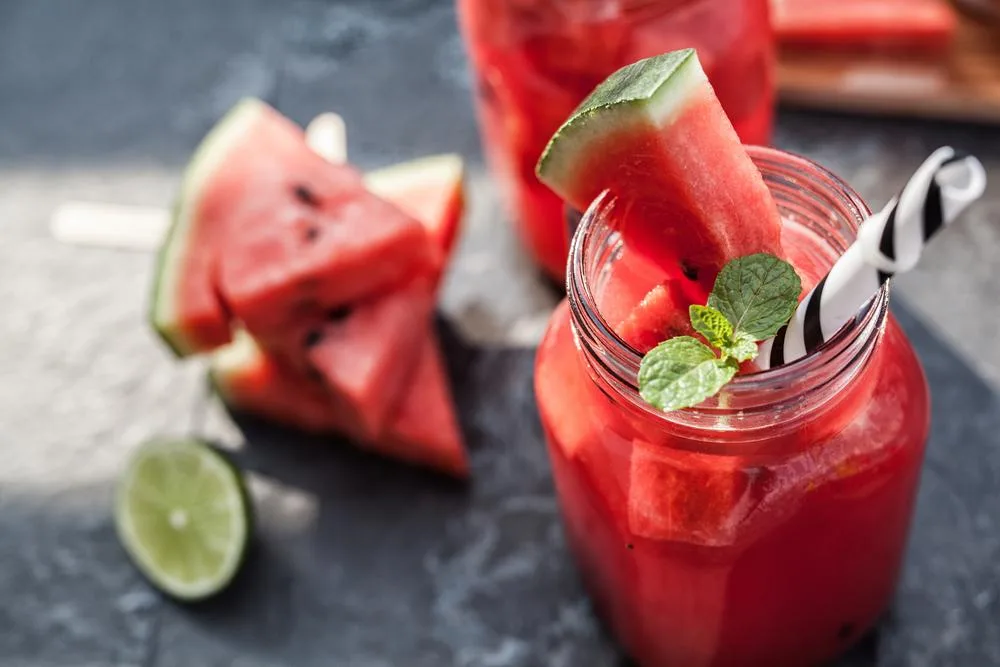


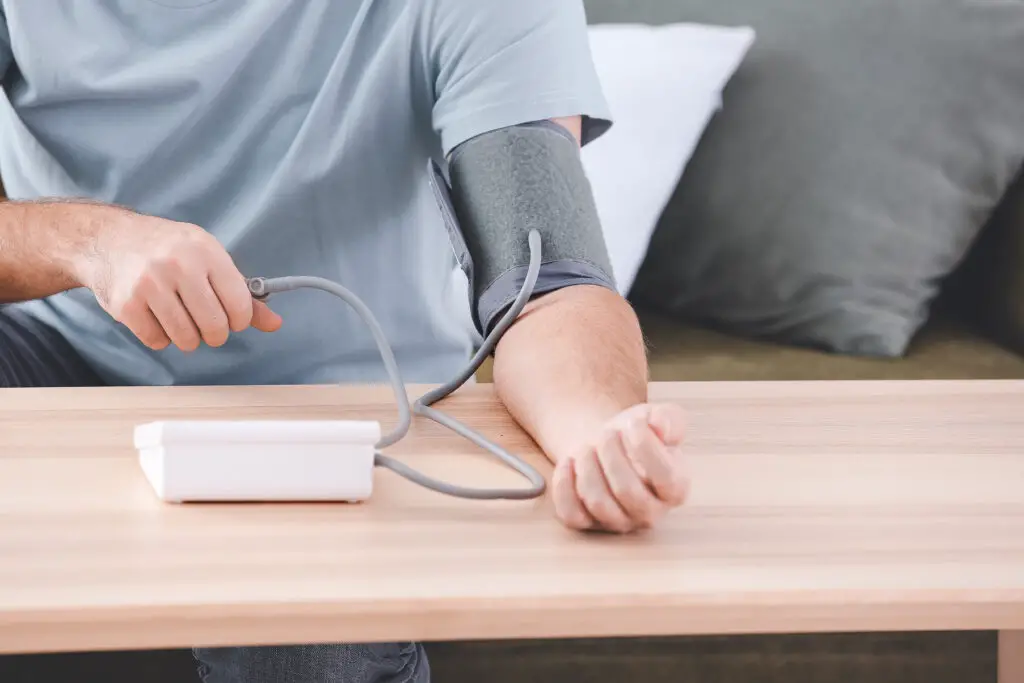
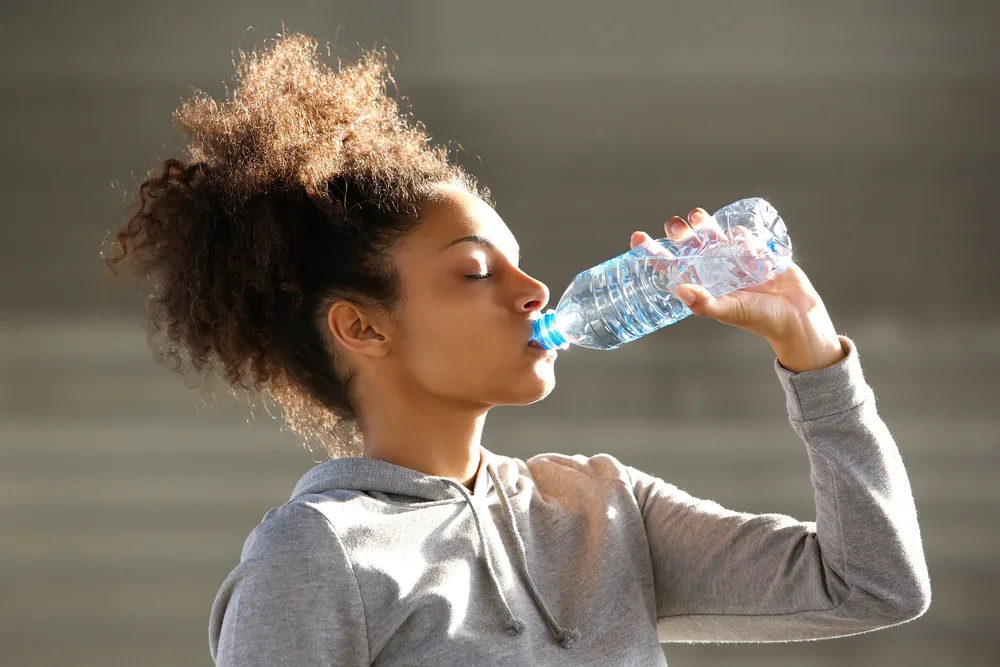
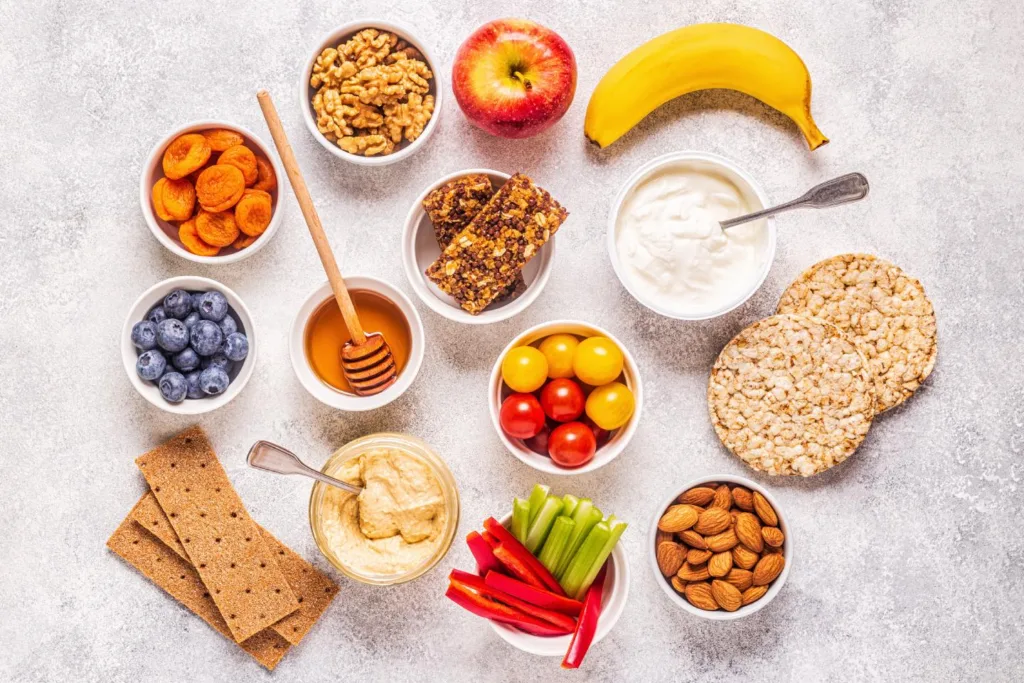





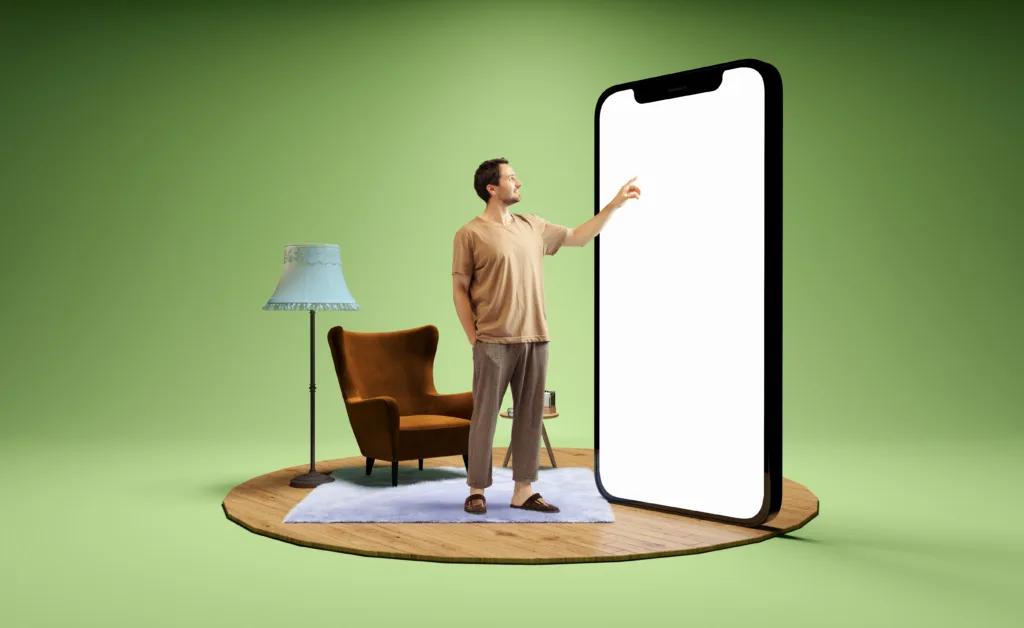
Comments
0